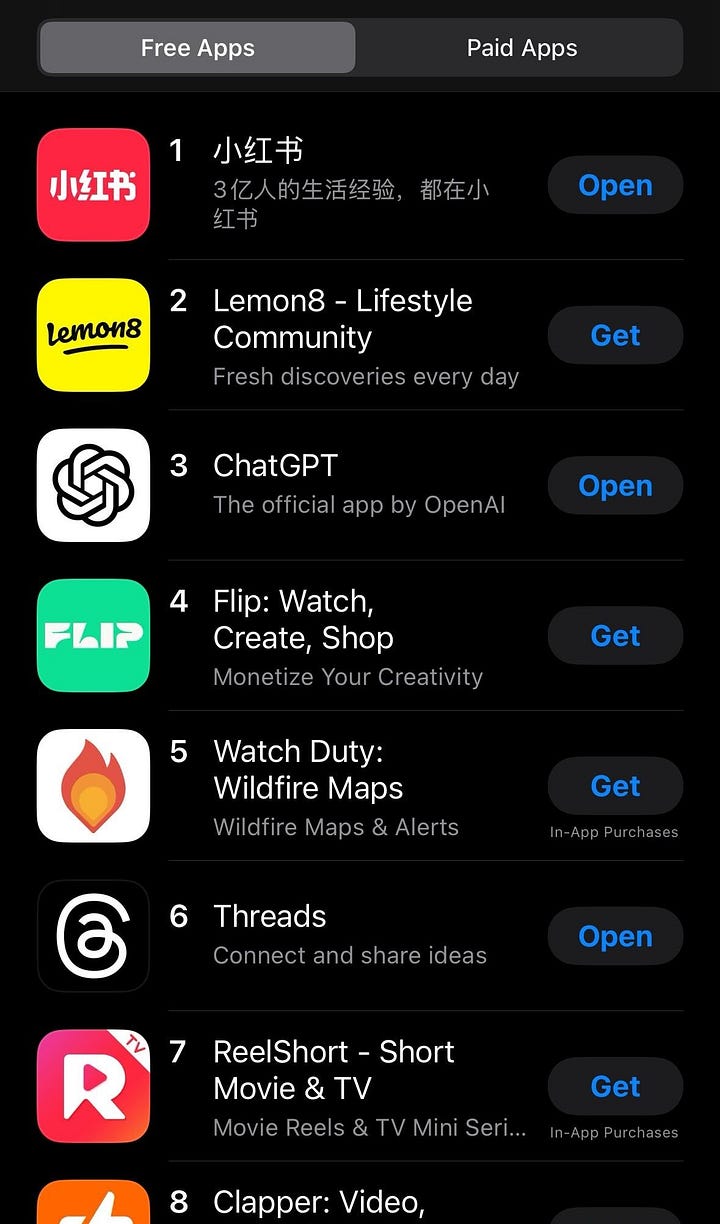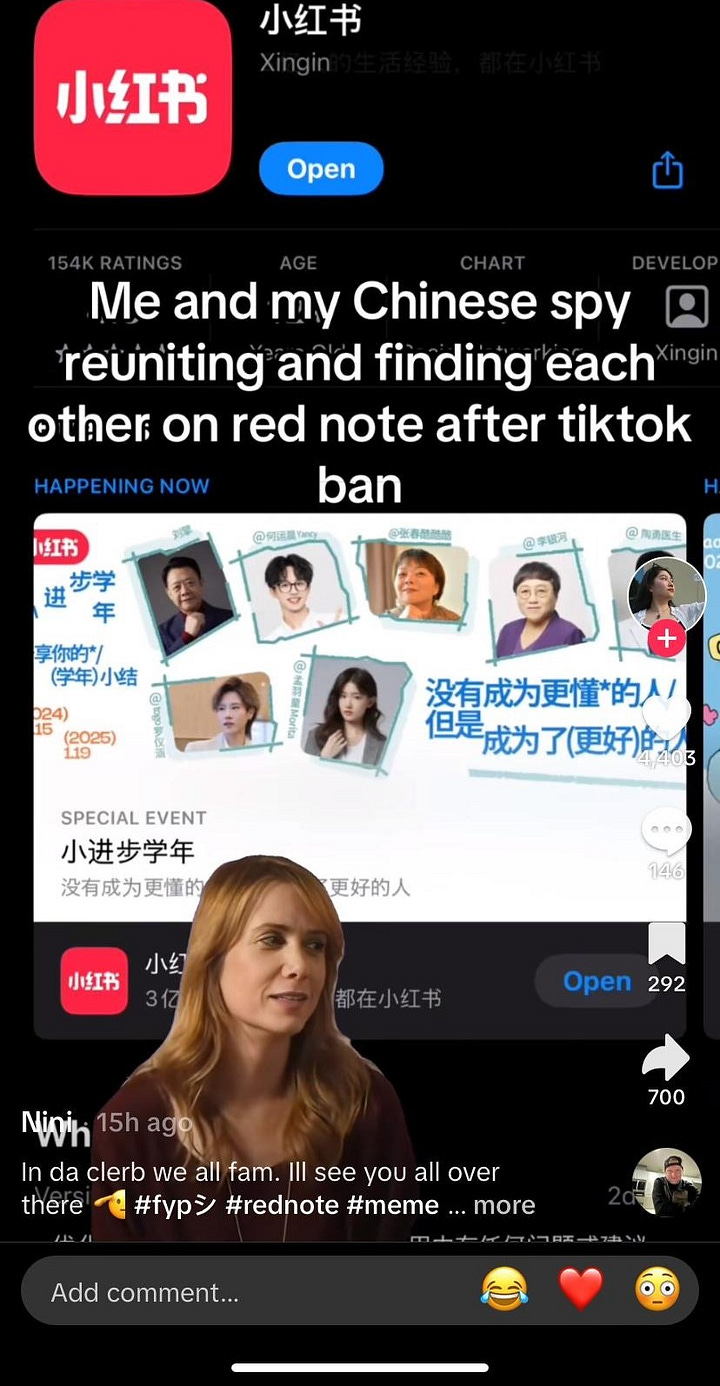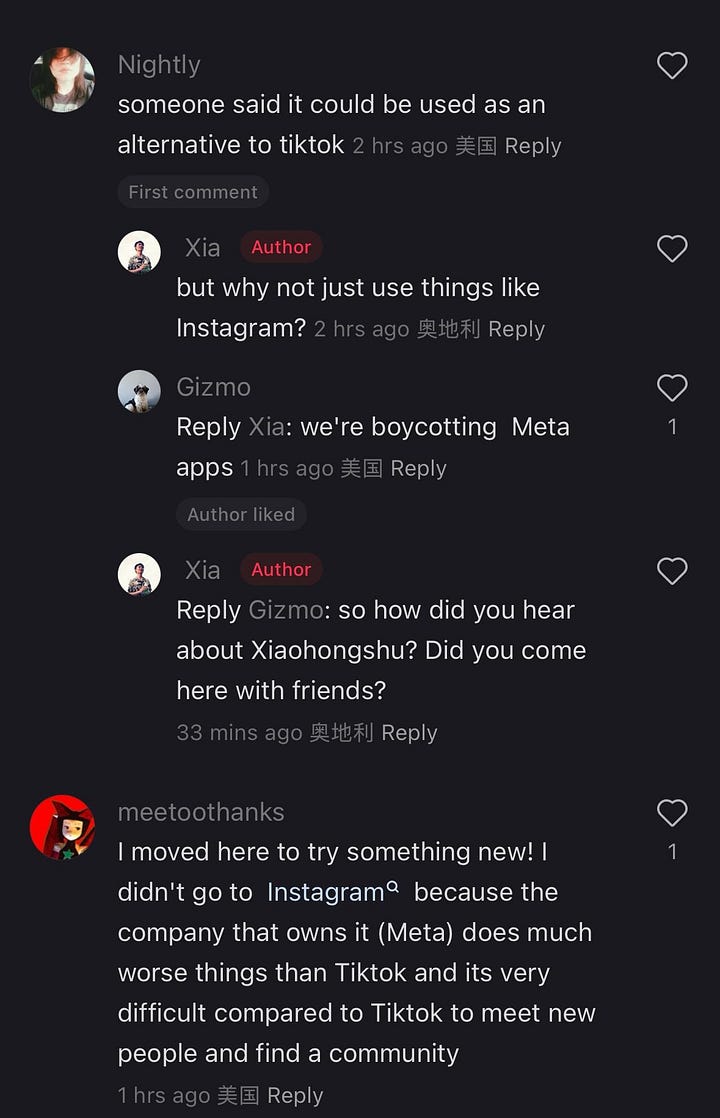TikTok Users Move to Xiaohongshu, or "Red Note," A Chinese App With Overt Censorship and Data Collection
As the U.S. moves to ban TikTok over concerns about data security and links to the Chinese Communist Party (CCP), millions of users are flocking to Xiaohongshu (“Little Red Book,” commonly known online as Red Note or XHS), another Chinese platform, sending it to the top of the U.S. App Store. Created in 2013, Xiaohongshu is often compared to Instagram or Pinterest for its lifestyle and visually curated content. The app employs an algorithmic recommendation system that delivers highly personalized content, much like TikTok. But unlike TikTok, Xiaohongshu operates under direct CCP oversight. Discussions critical of the Chinese government—such as those about human rights abuses and the treatment of Uyghurs—are systematically suppressed, while state-aligned narratives promoting Chinese nationalism and the success of CCP policies are actively encouraged. Xiaohongshu thus functions dually as a social app and a vehicle for ideological influence, integrating entertainment with the CCP's strategic objectives.
Ironically, U.S. efforts to curtail TikTok’s reach have unintentionally driven users toward a platform even more explicitly tied to Chinese state interests. This migration highlights a critical failure in U.S. digital policy: a myopic focus on TikTok without fostering viable domestic alternatives has left users vulnerable to yet another platform under the thumb of an authoritarian government. Beyond concerns over ideological influence, the influx of Western users into Xiaohongshu poses a significant data security risk, funneling masses of personal information into a system which prioritizes regime control and could later weaponize that data for espionage or coercion. The extent of the data usage is unknown, but other Chinese apps such as WeChat are known to collect international user data and use it to improve censorship mechanisms. Now, millions of new users have unwittingly become tools of data collection for the CCP.
Failure to confront the CCP’s broader threats head on—due to political disunity, public complacency, and policies of appeasement—has left the U.S. dangerously exposed. The U.S. Congress’s inability to effectively communicate the full scope of the CCP’s intentions has resulted in widespread underestimation of the risks, leaving many users unaware of the security and human right implications of their digital choices—and ignorant as to how and where they are sharing their data. Xiaohongshu's rise brings into sharp relief the need for a holistic and proactive approach to digital governance. Democratic governments must address regulatory blind spots, enforce robust data protection laws, and cultivate more competitive domestic platforms. Otherwise, attempts to counter China’s digital influence will amount to little more than rearranging deck chairs on a sinking ship.







